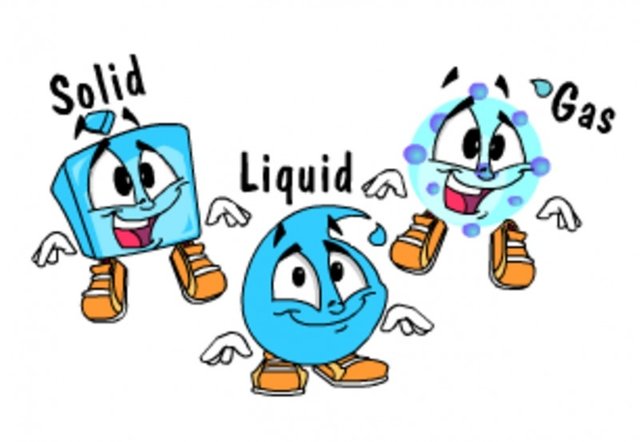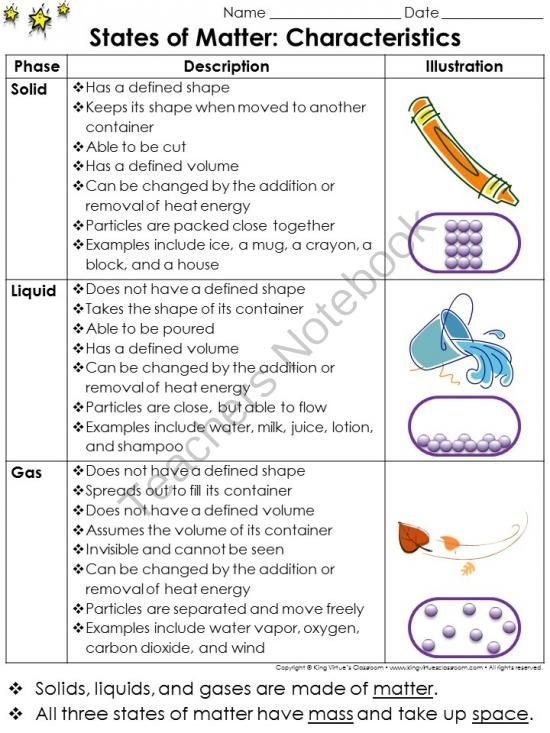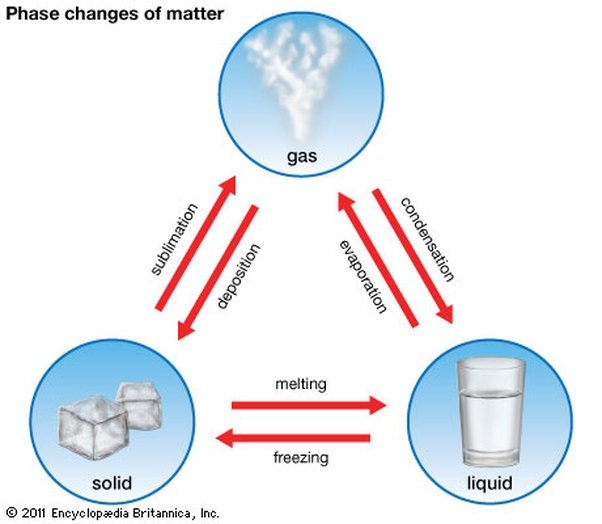Matter and the phase of matter - Science Gr 4
Look around you. Everything you see is made up of something and is called matter. Matter takes up space and we can weigh it.
Matter can come in three stages. Solid, liquids and gases.

Lets think about water?
- Water is a liquid.
- What happens if we put water in the fridge? It turns into ice which is a solid.
- What happens if you boil water? The liquid in the kettle is going to boil and it is going to turn into a gas which we call water vapour.
Does this confuse you a bit? Watch the video for some extra information
What are the properties of each of these stages (what can you say about it)

Read through the column again and answer the following questions
- give an example of a solid, a liquid and a gas.
- what does it mean if something has volume?
- what must be added or taken away to change a solid to a liquid or gas?
- if you drop a glass of colddrink on the floor, why does it not stay in one shape/place?
- what does a gas do to fill a container?
- why can a gas not be seen?
- name two things that you know about matter (tip - what does it have and take up)
Change of state
We know that if you take ice and put it in the sun (add heat) it is going to melt and turn into water.
If you add more heat and let the water boil, it is going to turn into a gas.
Matter changing from a solid to a liquid to a gas is called change of state or change of phase.

Remember the following - you change the state of matter by adding or taking away heat. There are many types of matter but to remember the different phase changes and the method you use, we use water as an example.
Read the explanation below and then explain it in your own words by looking at the picture
- If you take a solid and melt it, it turns into a liquid. (ice to water)
- If you freeze a liquid it turns into a solid. (water to ice)
- If you add heat to a liquid it will evaporate and turn into a gas ( water to water vapour)
- If you take away theheat, the gas will turn back into a liquid through condensation (gas into water) - you also learned about this in the water cycle.
- If a solid changes directly into a gas (like with dry ice) we call it sublimation.
- When a gas changes directly into a solid, we call it deposition.
For enrichment work you can watch the video
You can also do some extra exercises on https://www.google.com/search?q=changes+of+state+for+gr+4&ie=utf-8&oe=utf-8&client=firefox-b-ab&gfe_rd=cr&ei=VbahWdTiIeOo8weEhLf4CA
and download and complete the activity sheet on http://e-classroom.co.za/wp-content/uploads/2015/05/EngGr4T2-NS-Matter-and-materials-materials-around-us-change-of-state.pdf


Team South Africa banner designed by @bearone
Really excellent post anneke.
Thank you so much
Wonderful post anneke. Learned something new today.
Thanks for the feed @anneke!
This good post of yours will be featured to my blog.
Thank you I really appreciate that - I add educational pieces every day so I hope some will be featured there again.
Of course @anneke! actually Steemit Digest is just starting, so you are one of my few followers that i've been looking at everyday. You seem very passionate to your work.
Great things will come i believe. God bless!
Thank you and I hope you go from strength to strength
Great lesson @anneke Thanks for sharing.
Following and upvoted.
Cheers,
bucky
Thank you very much